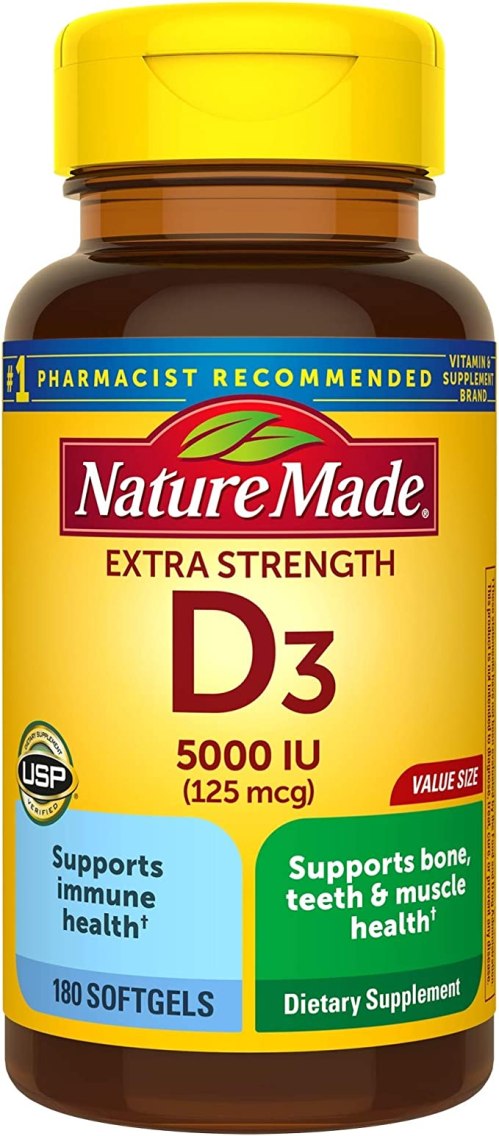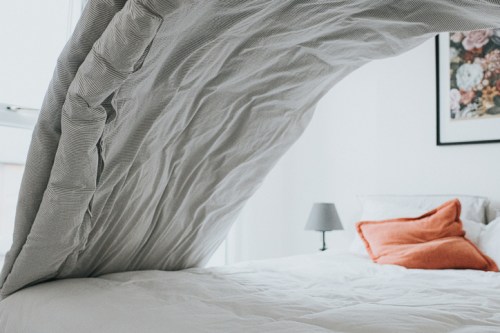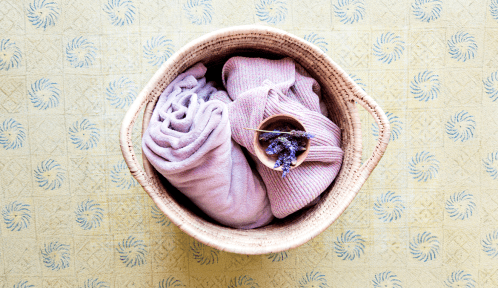Our editors independently select these products. Making a purchase through our links may earn Well+Good a commission
Winter invokes a lot of changes, good and bad. Festive treats and music go very much in the pro column, while perpetually dry skin and shoveling your car out every day before work are on the cons side. And interestingly, the season’s mixed-bag vibe can also positively and negatively impact your sex drive and libido.
Experts in This Article
board-certified OB/GYN and chief medical director at Bonafide Health
licensed psychologist and certified sex therapist and founder of Modern Intimacy
board-certified OB/GYN with The EpiCentre of Charleston and medical advisor for Natalist and Everlywell
relationship and sex therapist, founder at The Center for Modern Relationships
Why? The winter season can “be evocative of many feelings for people,” says Kate Balestrieri, PsyD, a sex therapist and founder of Modern Intimacy. “Some find comfort and nostalgia in the season, while others find it dreary and painful to endure.” There are also some unique things that happen during winter that can play a role in messing with (or benefiting) your sex life—more on those in a sec.
Before diving in any deeper, it’s important to note that one’s sex drive is a complex issue, which, per Alyssa Dweck, MD, FACOG, involves psychological, emotional, physical, hormonal, and medical influences. “Libido naturally ebbs and flows in most [people] throughout life,” she says, adding that there truly is no “normal” when it comes to sex drive or the number of times someone has sex—either with a partner or themselves—in a given week or month.
So, while what is considered “low” libido is different for everyone, it is true that one’s sex life can certainly change in the winter months, be it for better or worse. To find out more information and gain additional insight, we tapped several experts, including therapists and MDs, to share how wintertime can potentially impact one’s sex life.
5 surprising reasons why winter can impact your libido—for better and for worse
1. You’re low on vitamin D
Vitamin D is a crucial nutrient that helps your body build strong bones, bolsters your immune system, and supports nerve and muscle function, per the National Institutes of Health (NIH). “Vitamin D is known as the sunshine vitamin because when our skin is exposed to sunlight, our bodies produce Vitamin D,” says Kenosha Gleaton, MD, an OB/GYN and medical advisor for Natalist. Additionally, since wintertime is accompanied by shorter days and less sunlight, it’s common for vitamin D levels to dip in the winter. That may contribute to why an estimated 42 percent of the U.S. population is deficient in vitamin D, says Dr. Gleaton.
So what does this have to do with your sex drive? Per Dr. Dweck, low vitamin D levels “might have [an] impact on testosterone levels and sexual drive.” While Dr. Dweck does say that testosterone and libido “may not be directly cause and effect related,” it is safe to say they are “surely associated.” Indeed, small studies have shown that vitamin D deficiency is associated with low sexual desire in women, and that daily supplementation might help improve mood and sexual functioning if you have low vitamin D levels.
With all this in mind, Dr. Gleaton states that adding a vitamin D supplement to your wellness routine “can be helpful,” particularly for those with a deficiency. (There are also some non-supplement ways you can up your intake, like drinking fortified milk and eating more mushrooms.) But, if you have any questions or concerns about vitamin D deficiency, discuss them with your doctor.

Natalist Vitamin D3 Gummy — $23.00

Nature Made Extra Strength Vitamin D3 — $15.00

Solgar Vitamin D3 — $14.00
2. You’re also dealing with Seasonal Affective Disorder
Often referred to simply as “SAD,” seasonal affective disorder—a type of depression triggered by seasonal change—impacts around 3 percent of the general population (which translates to roughly 10 million people). “There are a number of common symptoms related to SAD, such as low energy, difficulty sleeping, a drop in serotonin levels, and decreased sex drive,” says Dr. Gleaton.
If you feel like you’re experiencing key SAD symptoms like difficulty concentrating, oversleeping, low energy, feeling constantly sad or down, and low libido, talk to your doctor for a diagnosis—and help. There are a few ways to treat SAD, including light therapy and medication. (Although FYI, some antidepressants, which can be used to treat SAD, may also lower your sex drive further, says Dr. Dweck, so talk about all of your options with your MD.)
Additionally, talk therapy can also be useful in addressing SAD, says Michelle Herzog, LMFT, CST, the founder of The Center for Modern Relationships. “With treatment,” she says, “some can experience an increase in libido as symptoms improve.”
3. You’re more tired than usual
Dr. Gleaton says that increased fatigue—constant feelings of tiredness and grogginess—is “extremely natural” in the winter. The days are longer and the temps are (much) cooler, and as such, “our bodies also need to work harder to keep us warm, making the simplest tasks exhausting,” she says. Understandably, it’s possible that this may make you less likely to desire getting busy.
To help fight winter fatigue—while simultaneously boosting libido—Herzog has a few tips. For example, she says that “staying connected and having a consistent community” can help with fatigue since your social needs are being met through “positive social interactions.” In turn, this can directly impact your sex life for the better.
That said, don’t forget about that much-needed ~me time~ especially in the bedroom. Whether reading erotica or simply making more time for masturbating, “anything that brings you pleasure can help sustain sexual desire, which can ultimately combat the winter blues,” says Herzog.
4. Thankfully, cuffing season can help
Come winter, cuffing season—when singles couple up for the winter months—is in full swing, and this is actually great for your sex life. “The same anxiety about being alone that compels folks to get cuffed can also increase libido, as sex can be a strategy used to spark connection and evade loneliness,” says Dr. Balestrieri.
Herzog shares similar sentiments. “For those who end up coupling, sexual activity is likely to increase, given the nature of the early phases of new relationships.” Also, it’s important to keep in mind that cuffing season isn’t just for singles: In fact, this phenomenon can also impact couples in a positive way, offering them the opportunity to (re)connect and grow closer—especially in between the sheets.
5. Cold temps can also make you crave connection and intimacy
“Cooler temps call for cozy winter nights, which means some may experience a higher level of desire and connection,” says Herzog. That’s why winter is the perfect time to spice up your sex life from the comfort of home.
Besides, says Dr. Balestrieri, “As the months grow colder, many people do not have to try hard to find a reason to stay in and stay warm and cozy.” So, whether you choose to introduce a new sex toy, play an erotic game, try your hand at role-playing, or simply cuddle up under the covers—clothing optional, of course—the possibilities are seemingly endless. Just have fun and experiment away (safely, and with someone you trust, of course!).
Sign Up for Our Daily Newsletter
Get all the latest in wellness, trends, food, fitness, beauty, and more delivered right to your inbox.
Got it, you've been added to our email list.











